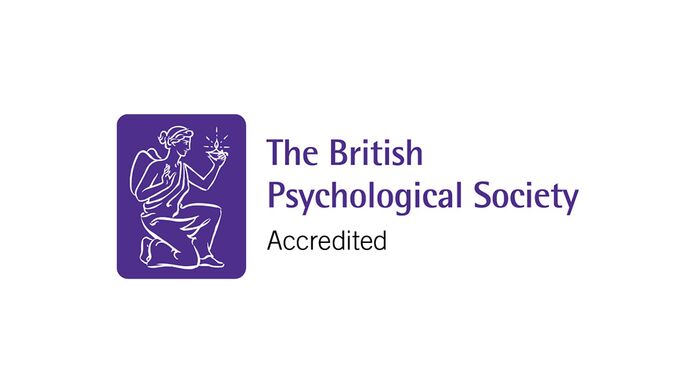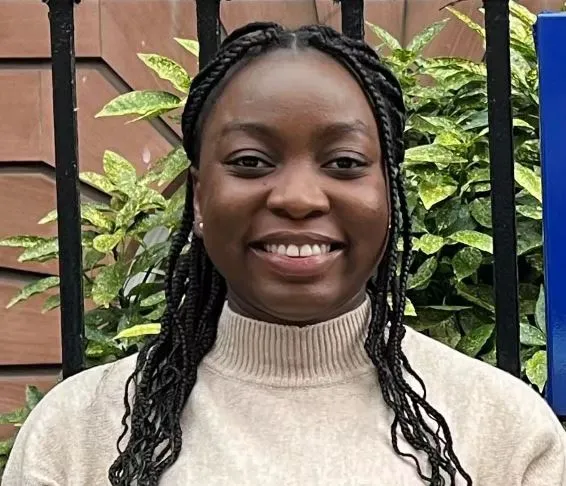Psychology (Conversion) MSc
A course for students who wish to obtain an accredited psychology degree that will support entry into the professional psychology career pathways

Psychology is the scientific study of the mind and behaviour. Psychology uses evidence-based theories to describe, explain, predict, and influence behaviour. This enables us to better understand why we think, act, and feel the way we do.
Our Psychology (Conversion) MSc course will teach you about, for example:
- how babies learn and develop
- cognitive biases such as confirmation bias and gender bias
- addiction, hunger, and stress
- how bilinguals keep their two languages separate
- personality types and how people differ from one another
- stereotypes and prejudices
- psychological disorders
- neurodivergence
Our Psychology degree will also help you develop interdisciplinary skills. These are important in life and valued by employers. You will learn how to think critically, solve problems, and work productively as part of a team. You will analyse data, learn to write effectively, and become a confident communicator. You will develop these skills, in part, by planning, implementing, and analysing data for a research project.
Our Psychology (Conversion) MSc course is accredited by the British Psychological Society (BPS). This course provides a solid practical and theoretical foundation in psychology designed for graduates who have not studied Psychology before or for those who have an unaccredited Psychology degree and would like to obtain BPS accreditation.
An accredited psychology degree is recognised for meeting the BPS's standards for course content and delivery. It demonstrates several desirable qualities to employers and academic institutions. These include an understanding of psychological principles and research methods, and valuable transferable skills. An accredited BPS degree is a prerequisite for further postgraduate training in Psychology in the UK.
You will also gain skills valued in other career paths, including education, social work, human resources, marketing, data analysis, and policing.
Our course uses a mix of teaching delivery and assessment methods. You will attend weekly lectures supplemented by tutorials, workshops, and practicals.
Across two semesters you will cover the breadth of psychology in core modules, including psychological research methods, biological psychology, cognitive psychology, developmental psychology, social psychology, psychology of language, and individual differences and psychopathology. Each of these issues will introduce you to key psychological concepts embedded within their historical context as well as presenting the most up-to-date theories and evidence.
Alongside these core modules you will conduct an independent piece of empirical research for your dissertation, using research methods such as experiments, surveys, or interviews. You will work closely with your dissertation supervisor where you will receive regular advice in one-to-one meetings or in small groups.
To help you succeed in our course, we have supplemented the core BPS curriculum with additional training and career-oriented talks. You will learn how to find, read, and appropriately cite psychological sources as well as how to adapt your writing to a scientific style appropriate for psychology in our Communicating for Psychology module.
You will attend bespoke tutorials and lectures designed to help you transition from a new psychology student to a student with masters-level competency within the year-long course. You will have access to a dedicated MSc student study space and to research facilities including tools to measure brain activity or track eye movements - all in the Psychology building.
Our student-run Psychology Society organises a variety of events. These include study skills sessions and a range of academic and career-oriented talks. Our Careers Service organises a series of presentations by professionals from various psychology careers (industrial, forensic, occupational, clinical, health, or educational psychologists). These will give you an insight into the range of professional psychology occupations that you might consider pursuing through further postgraduate training.
Professional accreditation

The course is accredited by the British Psychological Society (BPS). If you receive a 2.2 degree or higher, you will be eligible for BPS Graduate Basis for Chartered Membership and for entry to various graduate pathways towards a career in Psychology.

Michaella Tettey, Psychology (Conversion) MSc Student
If you have any questions about the admissions process, studying, or living in Dundee, please contact us